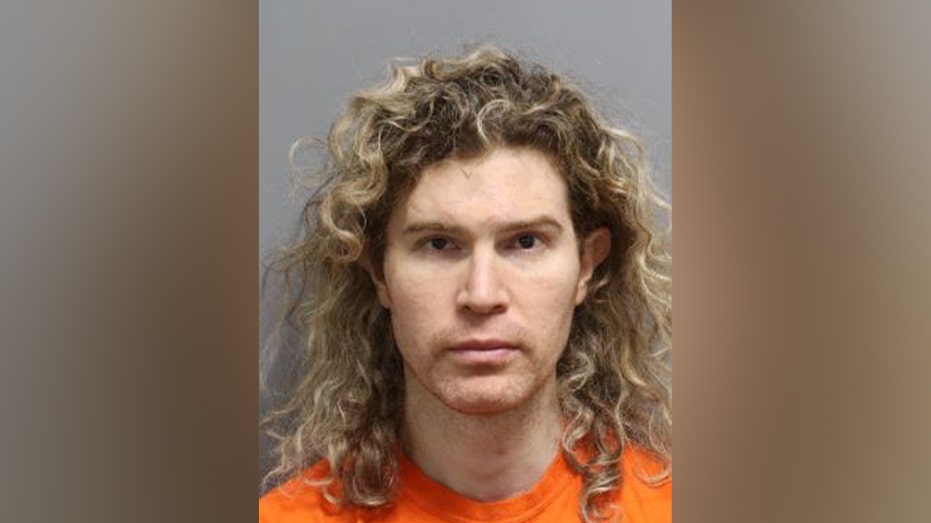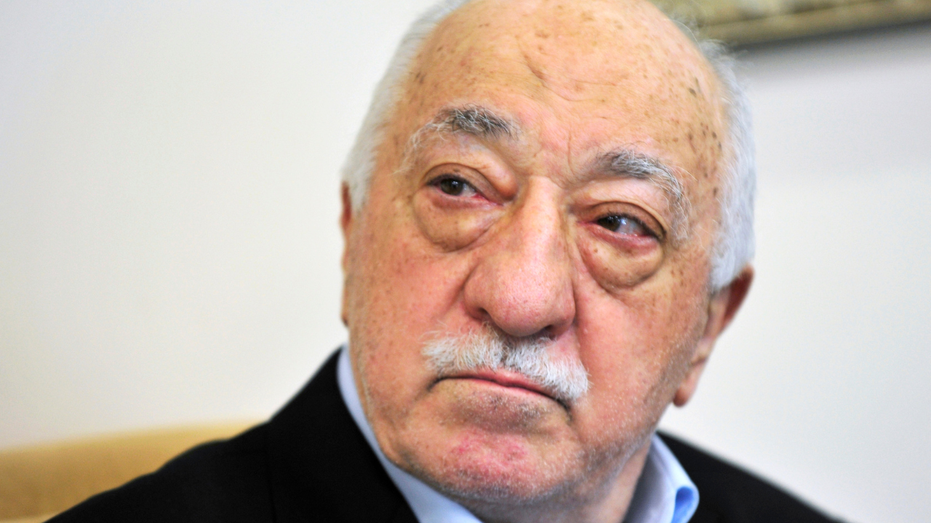It’s a Weird Time to Be a Libertarian
We’re now less than three weeks from Inauguration Day, and libertarians are anxious. On the one hand, the return of Donald Trump to the Oval Office represents the fulfillment of much of what they’ve been preaching for many years in terms of free markets and lower tax rates; on the other, it’s a threat to their very core beliefs about individual freedom and government overreach.The foundation of libertarian ideology rests largely on two premises: first, that maintaining more individual freedom is an inherent good and should be the ultimate objective of every policy, and second, that government interference in the economy is generally bad and should be avoided. Libertarian economists argue that markets are most efficient, and can do the most good, when the government takes a laissez-faire approach, as any government action is likely to cause unintentional harms—something known as the cobra effect. They are free market absolutists and civil liberty absolutists.So what, then, are they to make of a president-elect who vows to lower corporate tax rates yet threatens to raise tariffs, will seek to abolish vaccine mandates while imposing Robert F. Kennedy Jr.’s personal dietary beliefs on food producers, and will reduce the government’s regulation of the economy while jeopardizing free speech?For many libertarian leaders, both within the Libertarian Party and among the ranks of the literati at the Cato Institute who serve as the movement’s intellectual base, Trump’s autocratic tendencies overshadow his preferences for deregulation and lower taxes. Yet Trump and RFK Jr. succeeded in driving a wedge in the party and culling votes from its nominee, Chase Oliver, who, despite campaigning in all 50 states, failed to get half of 1 percent of the vote in 2024.“There’s a division here,” Oliver acknowledged to me recently. “Some people in our party leadership think it’s better to kind of be the J.V. league for the Republican Party and be a feeder league for them and try to play in concert with the two-party system.” Yet he notes that the Libertarian Party was founded for a reason; it represents an ideology that does not fit tidily with either the Republicans or Democrats but has agreements and disagreements with both.Though he did not mention her by name, one of the “people” Oliver may very well have been referring to is Angela McArdle, the party chairwoman. According to party Secretary Caryn Ann Harlos, McArdle first met with Trump a year before the election when he invited her to Mar-a-Lago. Trump later accepted her invitation to seek the Libertarian nomination at the party’s convention in May, but his speech was met with boos, and he was disqualified after failing to file the necessary paperwork. Nonetheless, since the election, McArdle has been unapologetic about what she perceives as the potential for progress under a second Trump administration, including Trump’s promise to free Ross Ulbricht, the operator of the Silk Road black market platform, and to appoint a libertarian to his Cabinet (a promise McArdle believes he’s fulfilling with the nomination of RFK Jr., though Oliver and others don’t view the political scion as a legitimate libertarian). Harlos, though suspicious of Trump, also said she’s “optimistic” about the future, while admitting that her optimism sometimes clouds her judgment. (She says she truly believed that Gary Johnson could win in 2016. He finished with just over 3 percent of the vote.) Oliver, on the other hand, is firmly in the pessimistic camp.“I think there will be some things on the fringes that we might celebrate,” he said. “Things like ending regulation.” But he added, “I think it’s important for us to recognize what regulation is ending. Is it regulation that puts some sort of a safeguard or oversight on things that Elon Musk wants to be doing?” (This is not purely hypothetical. Prior to the election, The New York Times analyzed the vast, interconnected nature of Musk’s businesses and the government, revealing a multitude of possible conflicts of interest that could arise from Musk’s new role.)While concerned about Trump’s second term, Oliver said he is hopeful that once Trump starts mucking everything up, the Libertarian Party can emerge as a viable alternative. Harvard economist Jeffrey Miron, vice president for research at Cato and a Substacker, likewise argues that Trump’s chaos might make libertarianism more appealing to the general public. “I guess,” Miron said, “that he’s going to be good for it because I think the next four years may illustrate how inconsistent his perspective is.” Miron pointed to the fact that Trump is appointing “finance bros” and Wall Street types to his Cabinet while threatening to drastically increase tariffs if his trade demands remain unmet. “It’s hard to imagine those people really wanting to impose 10 percent tariffs,” he says, since such an action could prove disastrous to their bottom lines. Miron fears that Trump’s policies, rather than genuinely helpi

We’re now less than three weeks from Inauguration Day, and libertarians are anxious. On the one hand, the return of Donald Trump to the Oval Office represents the fulfillment of much of what they’ve been preaching for many years in terms of free markets and lower tax rates; on the other, it’s a threat to their very core beliefs about individual freedom and government overreach.
The foundation of libertarian ideology rests largely on two premises: first, that maintaining more individual freedom is an inherent good and should be the ultimate objective of every policy, and second, that government interference in the economy is generally bad and should be avoided. Libertarian economists argue that markets are most efficient, and can do the most good, when the government takes a laissez-faire approach, as any government action is likely to cause unintentional harms—something known as the cobra effect. They are free market absolutists and civil liberty absolutists.
So what, then, are they to make of a president-elect who vows to lower corporate tax rates yet threatens to raise tariffs, will seek to abolish vaccine mandates while imposing Robert F. Kennedy Jr.’s personal dietary beliefs on food producers, and will reduce the government’s regulation of the economy while jeopardizing free speech?
For many libertarian leaders, both within the Libertarian Party and among the ranks of the literati at the Cato Institute who serve as the movement’s intellectual base, Trump’s autocratic tendencies overshadow his preferences for deregulation and lower taxes. Yet Trump and RFK Jr. succeeded in driving a wedge in the party and culling votes from its nominee, Chase Oliver, who, despite campaigning in all 50 states, failed to get half of 1 percent of the vote in 2024.
“There’s a division here,” Oliver acknowledged to me recently. “Some people in our party leadership think it’s better to kind of be the J.V. league for the Republican Party and be a feeder league for them and try to play in concert with the two-party system.” Yet he notes that the Libertarian Party was founded for a reason; it represents an ideology that does not fit tidily with either the Republicans or Democrats but has agreements and disagreements with both.
Though he did not mention her by name, one of the “people” Oliver may very well have been referring to is Angela McArdle, the party chairwoman. According to party Secretary Caryn Ann Harlos, McArdle first met with Trump a year before the election when he invited her to Mar-a-Lago. Trump later accepted her invitation to seek the Libertarian nomination at the party’s convention in May, but his speech was met with boos, and he was disqualified after failing to file the necessary paperwork. Nonetheless, since the election, McArdle has been unapologetic about what she perceives as the potential for progress under a second Trump administration, including Trump’s promise to free Ross Ulbricht, the operator of the Silk Road black market platform, and to appoint a libertarian to his Cabinet (a promise McArdle believes he’s fulfilling with the nomination of RFK Jr., though Oliver and others don’t view the political scion as a legitimate libertarian).
Harlos, though suspicious of Trump, also said she’s “optimistic” about the future, while admitting that her optimism sometimes clouds her judgment. (She says she truly believed that Gary Johnson could win in 2016. He finished with just over 3 percent of the vote.) Oliver, on the other hand, is firmly in the pessimistic camp.
“I think there will be some things on the fringes that we might celebrate,” he said. “Things like ending regulation.” But he added, “I think it’s important for us to recognize what regulation is ending. Is it regulation that puts some sort of a safeguard or oversight on things that Elon Musk wants to be doing?” (This is not purely hypothetical. Prior to the election, The New York Times analyzed the vast, interconnected nature of Musk’s businesses and the government, revealing a multitude of possible conflicts of interest that could arise from Musk’s new role.)
While concerned about Trump’s second term, Oliver said he is hopeful that once Trump starts mucking everything up, the Libertarian Party can emerge as a viable alternative. Harvard economist Jeffrey Miron, vice president for research at Cato and a Substacker, likewise argues that Trump’s chaos might make libertarianism more appealing to the general public. “I guess,” Miron said, “that he’s going to be good for it because I think the next four years may illustrate how inconsistent his perspective is.”
Miron pointed to the fact that Trump is appointing “finance bros” and Wall Street types to his Cabinet while threatening to drastically increase tariffs if his trade demands remain unmet. “It’s hard to imagine those people really wanting to impose 10 percent tariffs,” he says, since such an action could prove disastrous to their bottom lines.
Miron fears that Trump’s policies, rather than genuinely helping the working class by increasing prosperity for all, will instead redistribute benefits to those who have offered him the most support, and it’s evident that right now Trump’s most dependent on the tech billionaire class. Miron’s even bigger concern, though, is that Trump “seems to think he gets to decide on his own, rather than recognizing the limits on presidential powers, constitutional constraints, etc.”
Miron’s colleague at Cato, professor Ilya Somin of George Mason University, has frequently written about libertarian priorities and how political ignorance can undermine democracy. He’s even less cheery about libertarian prospects—and overall prosperity—under another Trump administration.
“I think potential beneficial effects of a second Trump administration (mostly in the area of microeconomic regulation) are likely to be much outweighed by his terrible policies on trade, immigration, and government spending,” he told me by email, “and by his plans to undermine freedom of the press. Much depends, of course, on how successful he is in trying to carry out his plans.” He added, “For the moment, I’m sort of in a pessimistic mood, but I hope I’m wrong.”
Somin does not believe that libertarianism needs a giant overhaul, but he does advocate for tweaking it in ways that don’t violate its core principles yet make it more broadly appealing. Though some issues are sacrosanct (such as organ markets, which Somin and many other libertarians support), libertarians need not be absolutists in every regard, he says. Though libertarians would prefer to see all zoning laws abolished, an easing of zoning restrictions is at least a step in the right direction. Somin pointed to the successes of the Yimby movement, which has made it possible for more affordable housing units to be built. And rather than push for total “open borders,” which is a distasteful term to much of the public, Somin says, they can accept compromises that will allow more immigrants into the country.
Oliver, too, believes that you have to work on a case-by-case basis and take what victories you can. “Maybe it’ll be a hard time identifying those ethical Republicans and Democrats who want to improve the process. But once we identify them, we want to support them when they do put legislation out there, we want to amplify their voices when they do things we agree with,” he said. “There is a certain amount of pragmatism in not letting the perfect be the enemy of the good. Recognizing that you might not get 100 percent of the libertarian utopian ideal, but you can still move the ball forward in terms of liberty.”
Of course, the problem is that, in Trump, libertarians are dealing with someone whose nature is entirely transactional and who has no real ideological core. It means that, while libertarians might be able to achieve certain objectives by working with him and his acolytes, they can never be sure that they’re not undermining their beliefs in civil liberties by strengthening Trump’s position. Any victory you give to Trump could mean putting another nail in your own coffin.
Harlos essentially acknowledged this, fearful that the Libertarian Party might get devoured as it struggles to distinguish itself.
“I do believe that the Libertarian Party is in an existential crisis for its identity and existence,” she said. “And the people who want us to remain a distinctly libertarian movement are prepared to fight for it.”



